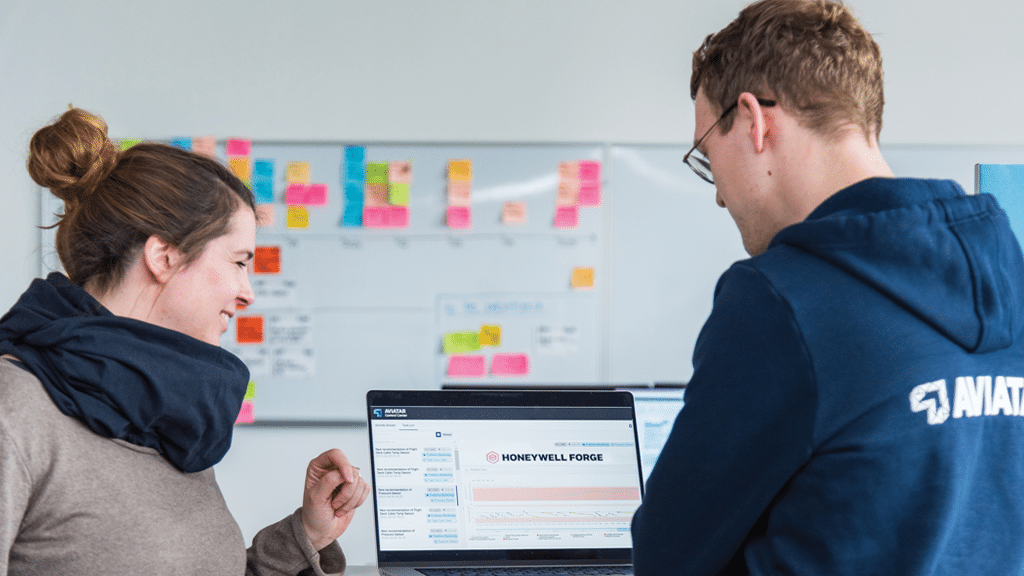In late March, it was announced that Honeywell Connected Maintenance analytics were to be fully integrated into Lufthansa Technik’s AVIATAR digital platform.
Predictive maintenance has been around for a while. In this particular case, it dates back to 2017, when Honeywell completed a trial with Cathay Pacific to demonstrate how advanced data analytics could improve the operational availability of its Airbus A330 fleet. Using existing datalinks, successful analysis of data from the equipment showed a 35% reduction in operational disruptions with a false positive rate of less than 1% percent, saving the airline several hundred thousand dollars in operations and maintenance costs on a single aircraft system. This was the GoDirect Maintenance Services program, part of Honeywell’s Connected Aircraft Services.
Also in 2017, Lufthansa Technik launched its AVIATAR platform and combined fleet management solutions, data science and engineering expertise into digital services and products. Based on their customer needs, AVIATAR developed further solutions together with its customers and prioritized them accordingly within its community.
Honeywell’s activities piqued the interest of Lufthansa Technik and, a year later, the two companies started a collaboration in which the German MRO had an agreement with some of their customers that it would seamlessly transfer data from some of its AVIATAR customers to Honeywell for deeper fault analysis. Honeywell would then return the results back to Lufthansa Technik to be displayed in the AVIATAR platform. This also started with APUs and was then expanded to the whole aircraft ‘nose to tail’, involving any system or component that could provide data. These were selected after talking to customers to find the problem items that were causing the most delays or had a high maintenance spend, as well as items that caused AOGs and MEL items that might affect performance, such as increasing fuel consumption and then making sure data was available to enable the data science.
Separate developments in each company led to Honeywell’s Connected Maintenance product portfolio and Lufthansa Technik’s AVIATAR digital platform. Bernhard Flohr, head of strategy, business development and cooperations for digital fleet services at Lufthansa Technik, says the drop in work levels during the pandemic caused by massive airline groundings gave them time to focus more closely on integrating functions in AVIATAR and improving the accuracy of the predictive algorithms. This was helped by positive feedback from customers like United and Wizz Air, which helped develop confidence.
Mathew Emery, product offering manager, digital maintenance and sustainability, says Lufthansa Technik had some offerings in AVIATAR that were similar to Connected Maintenance, which had taken a deeper, data-science focused approach in the development of predictive algorithms than its German counterpart, which had a slightly different approach. He adds that Honeywell retains a support contract with Lufthansa Technik through its licensing of the Honeywell predictive analytics, but has actually withdrawn Connected Maintenance from the airline transport sector to focus on other areas and industries under Honeywell Connected Enterprise (HCE), through its cloud platform also known as Honeywell Forge.
Karen Miller, general manager, Honeywell Connected Aerospace, says this is a move to expand on the company’s historical digital focus on aircraft and flight operations. Honeywell Connected Enterprise is using a cloud-based software as a service solution with big data, analytics and AI to manage assets on the ground and to analyze and improve workforce efficiency. This is applicable across a wide range of industries, such as chemicals, distribution centers, mining and oil and gas. For aviation, this is likely to see the company involved in the running of MRO facilities and hangars (smart buildings), integrating supply chain management and warehousing, for example, down to monitoring the utilization of CNC machines, including predictive maintenance for them (smart workshops).
Honeywell’s new long-term agreement sees Lufthansa Technik licensing the analytics from the Connected Maintenance product portfolio. It can now modify the raw code to fully integrate them into AVIATAR’s Predictive Health Analytics (PHA) suite. As the analytics are OEM agnostic, they will be applied to multiple Airbus and Boeing aircraft types, especially later models that are data rich. Each system or component analytic module using the Honeywell data is called a Predictor and there are already more than 100 Predictors available on AVIATAR. With the new agreement, this number will grow depending on operational needs of airline customers.
The new agreement means airlines can take advantage of an integrated single product offering designed to help reduce maintenance costs, technical delays and cancellations in airline operations. AVIATAR’s integrated data analytics capabilities, enriched with Honeywell Predictors, are part of a seamless digital product portfolio for airline Tech Ops.
Nikolaus Koerner, senior director commercial steering, digital fleet services at Lufthansa Technik, says the new offering creates a unique suite of predictive Tech Ops solutions, integrating world-class analytics in one true nose-to-tail product offering that covers many different ATA chapters and aircraft types. Airlines will benefit from a consistent user experience and access to the full range of analytics along with connections to the wide portfolio of solutions provided by the Digital Tech Ops Ecosystem, which now includes AMOS MRO software from Swiss Aviation Software and digital records and asset solutions from flydocs.
In January, it was announced that AVIATAR, AMOS and flydocs, while remaining independent, will enhance collaboration to accelerate digitalization at airlines, with the aim of reducing MRO costs, enhancing process efficiency, increasing operational stability and aircraft availability and also optimizing asset values.
